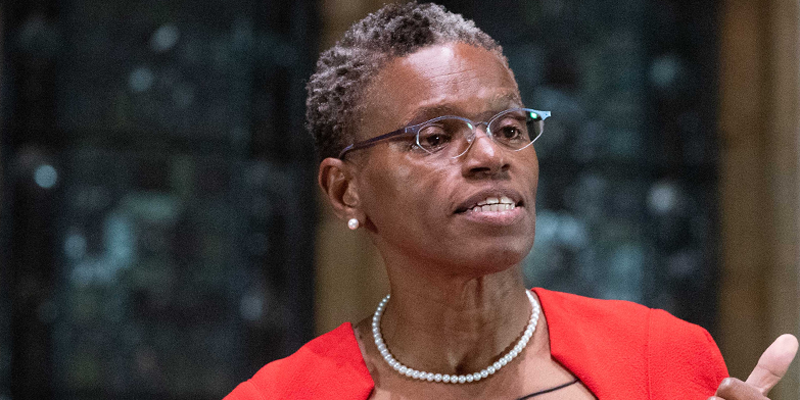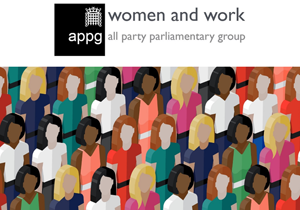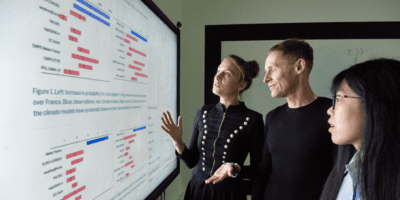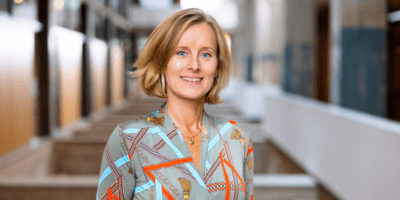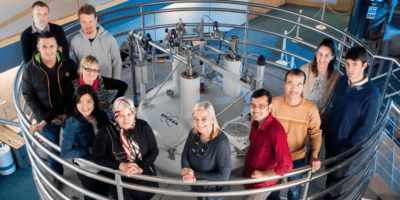Ijeoma Uchegbu a professor of pharmaceutical nanoscience at UCL (University College London) and she is a Fellow of the Academy of Medical Sciences, a governor on the Wellcome board and chief scientific officer of Nanomerics Ltd, a UCL spin-out company. She has served as chair of the Academy of Pharmaceutical Sciences and chaired EPSRC and Science Foundation Ireland grant prioritisation panels. Ijeoma was, until recently, UCL Provost’s Envoy for Race Equality and leads on race equality work at UCL, as well as UCL’s former Pro Vice Provost for Africa.
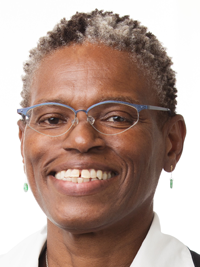
“I think that there should be a race equity strategy for the whole school and higher education sector and that racial disparity data in awards at the school and university level should be published, interrogated and those organisations that remedy the obvious deficits in our education and research should be rewarded.”
Addicted to science
I grew up in Hackney and South East Nigeria. I studied pharmacy at the University of Benin in Nigeria, and I graduated in 1981 before I earned my master’s degree at the University of Lagos. I came into science simply because after training as a pharmacist I wanted something a little bit more challenging to do. I thought that being a researcher would be a great place to start.
I did give research a try in Nigeria, but I couldn’t complete a PhD because the infrastructure difficulties in the eighties made this virtually impossible. I came back to the UK, having emigrated 17 years earlier from the UK to Nigeria and started looking around for opportunities. At the time, I was a single mum with three young children and so doing a PhD was not really a natural fit with all the other delights that having children brings but I quickly settled into a routine with my PhD at the London School of Pharmacy.
A busy three years passed quickly and I was finally done, doctorate in hand, and totally addicted to science. I completed my postgraduate studies at the University of London, graduating with a PhD in 1997. I then did a few years ‘postdocing’ around the School of Pharmacy and then miraculously got a lectureship position in Glasgow and we were on the move again.
I was appointed a lecturer at the University of Strathclyde from 2002-2004. I then joined the London School of Pharmacy as a professor of pharmaceutical nanoscience in 2006. (The school merged with UCL in 2012.)
Harnessing the power of nanoparticles
My research considers how nanoparticles can be used to help deliver drugs to the body. In scientific terms this means I study the mechanisms of drug transport across biological barriers and create transformational drug transport nanoparticles.
I was the first to show that peptides could be delivered across the blood-brain barrier to elicit a pharmacological response. These findings led to the enkephalin pain medicine candidate, Envelta™, which was designed to address the opioid crisis. The technology underpinning Envelta™ won first prize in the Royal Society of Chemistry’s Emerging Technologies competition in 2017 and the Academy of Pharmaceutical Sciences Science Innovation Award in 2016.
Three other medicine candidates based on this nanotechnology have been out-licensed to pharmaceutical companies in the US. My work has been funded continuously for 23 years by the EPSRC (the Engineering and Physical Sciences Research Council) and I serve on the council of the BBSRC (the Biotechnology and Biological Sciences Research Council).
When I was UCL’s Pro-Vice Provost for Africa and the Middle East, I led on the international research and teaching engagement strategy in this region. I have served as chair of the Academy of Pharmaceutical Sciences and chaired EPSRC and Science Foundation Ireland grant prioritisation panels. I am the immediate past UCL Provost’s Envoy for Race Equality and whilst in that position, I led on race equality work at UCL. I’m proud to say that my initiatives (e.g. Dean’s Pledges on Race Equality) were instrumental in achieving UCL’s Bronze Race Charter in 2020.
Womanthology readers will be familiar with Soapbox Science, an international science outreach programme promoting women scientists and the work they do to members of the public. I took part in this in 2017.
Role as chair in pharmaceutical nanoscience day to day
Our work involves designing medicines using nanotechnology. Our aim is to control the way drugs move around the body so that most of the drug is targeted to disease areas and less of the drug goes to healthy tissue and causes side effects. In our laboratory, we design and fabricate these new medicines and test them. This year we will test one of our first medicines in humans in a clinical trial. That is what I am working on at the moment.
COVID-19 impact
COVID-19 has made us think about ways in which we could help the preventative effort and so we have been working on a nasal spray to prevent the transmission of COVID-19. Vaccines prevent serious disease but do not do enough to prevent transmission and so we are engaged with this aspect of COVID-19.
COVID-19 disrupted our laboratory work in 2020 and left many students scarred by the compulsory stay-at-home orders. Nothing is being done to address the harm done to our students and poorer pupils by the necessary lockdowns.
Gender (im)balance in pharmacy
The issue of gender balance in pharmacy is interesting. At the undergraduate level, 70% of pharmacy students are female, but at the top of the academic field (the professorial level) less than one in 5 professors are female. There is a progressive leak of female talent at every stage of the career ladder. The top pharmacists working in hospitals are also overrepresented by male individuals.
All-Party Parliamentary Group on Women and Work session — Tackling Diversity Issues in Male-Dominated Industries
In this recent session I spoke about the racial disparities in science. When it comes to funding from government (funding from the United Kingdom Research and Innovation agency) Black researchers are very unlikely to lead on funded research proposals.
For the past 23 years, my research has been funded in an unbroken fashion by the Engineering and Physical Research Council, but this is very far from normal. Black, Asian and Minority ethnic individuals are less likely to chair funding panels, where funding decisions are made even though such researchers provide peer review of the actual funding applications. So, ethnic minority researchers are actively engaged in non-remunerated peer review of funding applications, but are less likely to chair a funding panel. Black researchers, in particular, are highly unlikely to lead research grants and hence lead research.
I pointed out that our education system is not fit for purpose as Black pupils start to fall back by the GCSE point even though they were achieving very well in primary school. I also pointed out that the nature of the degree award is negatively impacted if one is an ethnic minority.
Addressing the problems
I think that there should be a race equity strategy for the whole school and higher education sector and that racial disparity data in awards at the school and university level should be published, interrogated and those organisations that remedy the obvious deficits in our education and research should be rewarded.
How Womanthology readers can help
Womanthology readers can ask the questions of all organisations that they deal with. What is the awarding gap in your university? What is the sector awarding gap at A-level and why do we tolerate these differential outcomes? What is the funding differential for Black and White researchers with our funding bodies and how are we all going to change the situation where the research decisions are made by a particular part of society?
Womanthology readers, who are well placed in their careers, can also offer advice to junior colleagues in order to allow them to thrive in a non-discriminatory fashion.
Coming up
I am very excited about getting the technology that we have developed into clinical testing. This is a very exciting part of my professional life at the moment. I am also very excited to join the governing body of Wellcome, one of the biggest research charities in the world.
Main image credit: By Ijeoma Uchegbu – Own work, CC BY-SA 4.0, https://commons.wikimedia.org/w/index.php?curid=75215372

